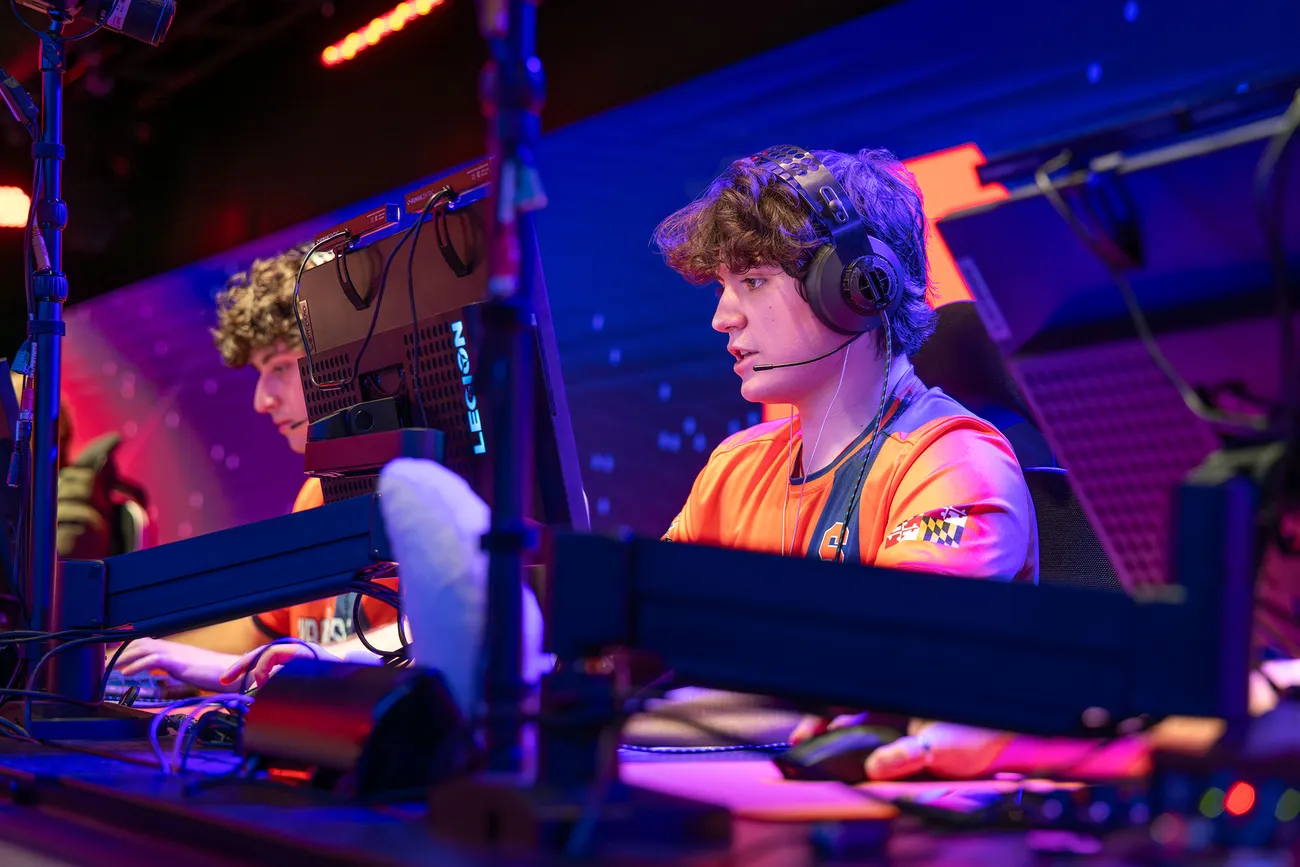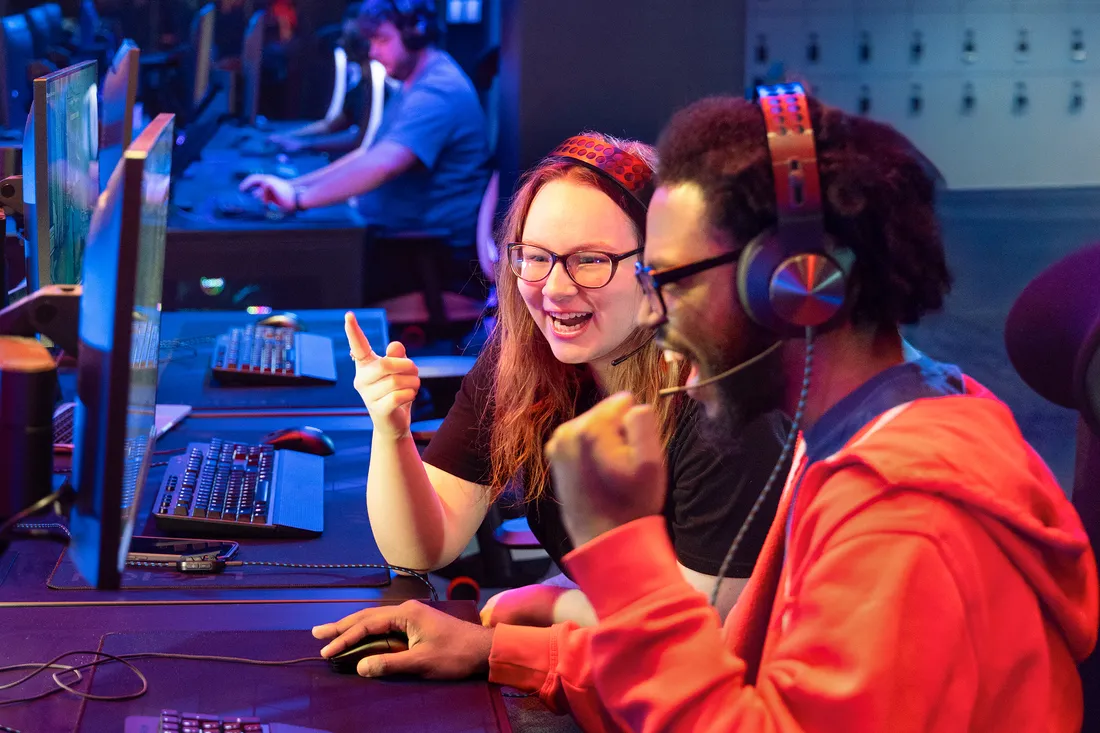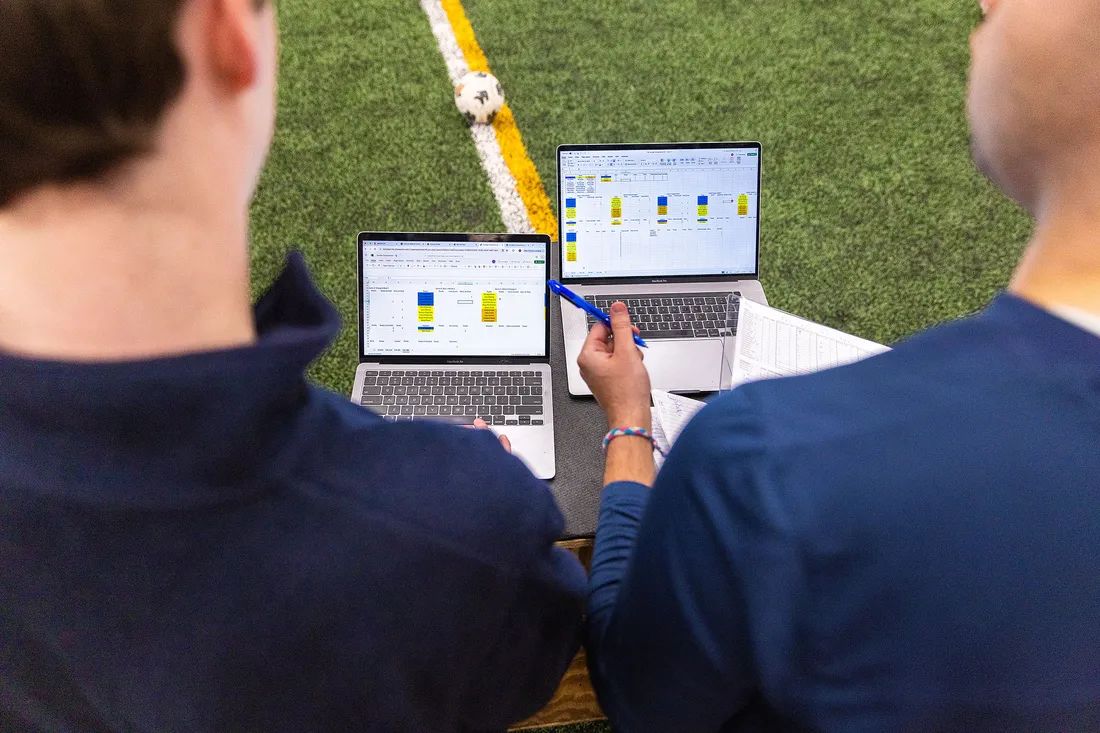Just as backyard Wiffle ball or pickup basketball can spark dreams of going pro, gaming has evolved from a casual pastime into an international spectacle. Today, esports fills stadiums, fuels multimillion-dollar tournaments and draws global audiences that rival traditional sports.
At the forefront of this digital revolution is Syracuse University, offering a first-of-its-kind academic program: the esports communications and management degree. This interdisciplinary undergraduate program blends sports management, digital media and gaming culture to prepare students not just to play—but to lead, market and innovate across the esports industry and beyond.
Playing to Your Strengths
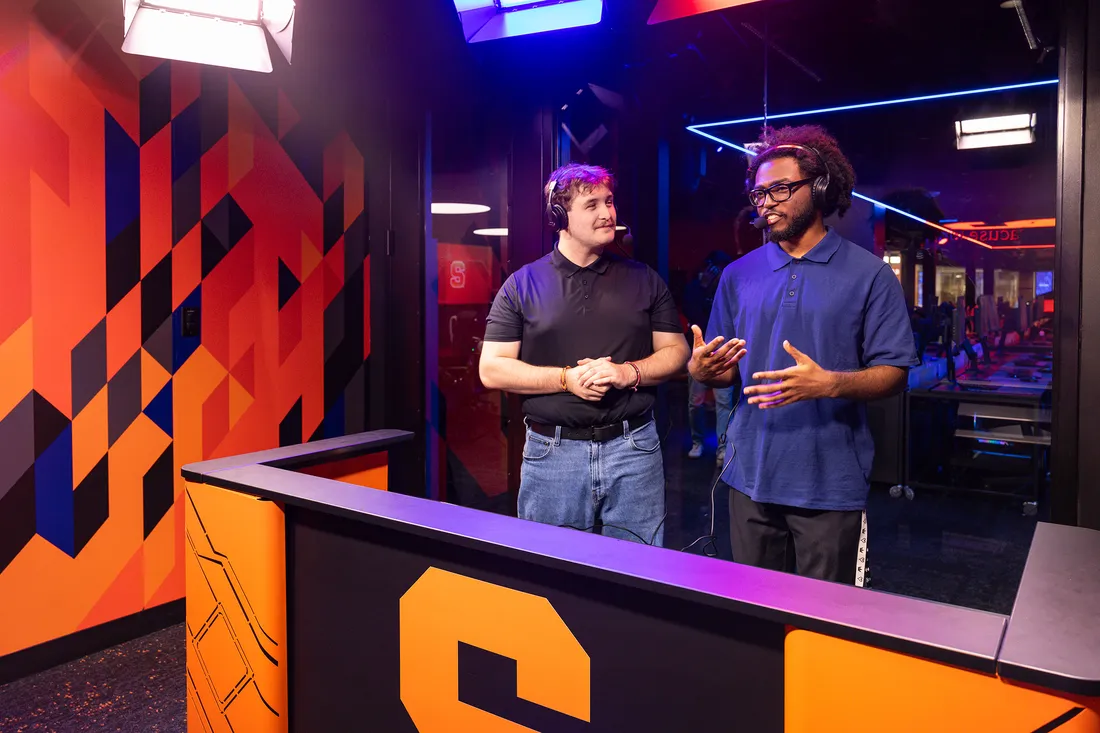
Students learn the art of shoutcasting—esports-specific broadcasting—as they practice delivering live commentary for competitive gaming audiences.
Offered through the David B. Falk College of Sport and the S.I. Newhouse School of Public Communications, the program includes three distinct tracks:
- Esports business and management: For future team managers, event producers and entrepreneurs, this track focuses on the business side of esports, from sponsorship contracts to analytics to financial operations.
- Esports communications: For the shoutcasters—broadcasters specific to esports—and social media managers of tomorrow, this path teaches students how to create, promote and deliver engaging esports content to global audiences.
- Esports media and design: For aspiring game experience designers, animators and virtual producers, this track dives into visual design, 3D animation and the role of visuals in gameplay and engagement.
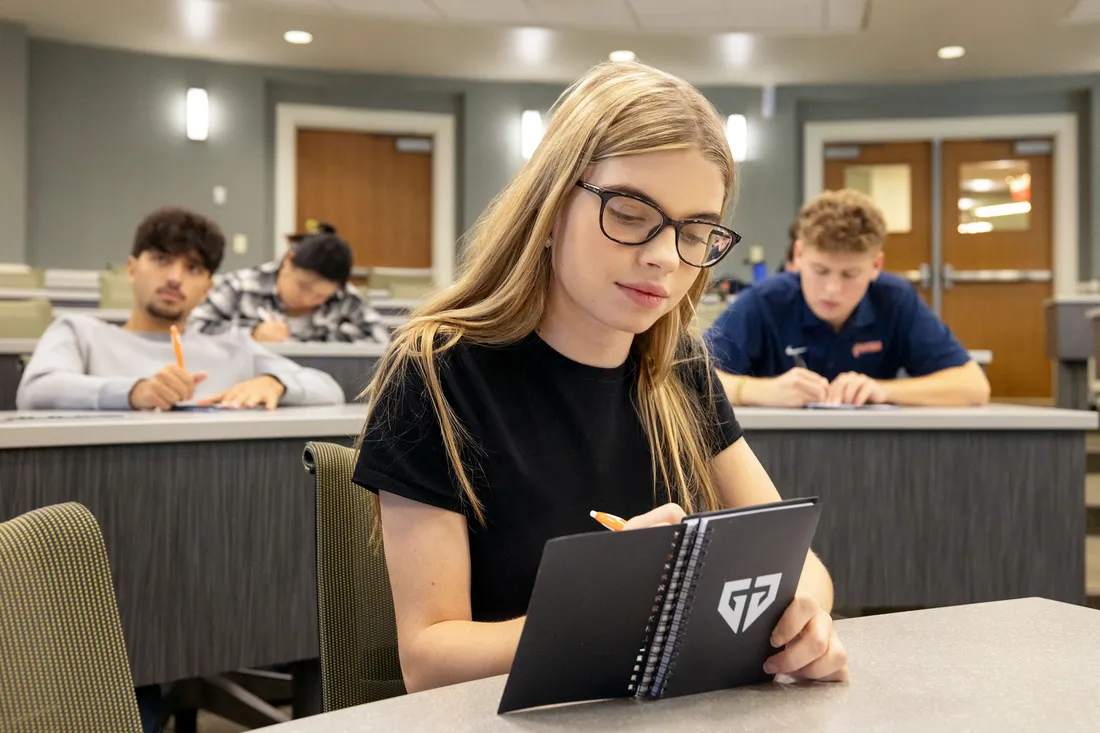
First-year student Emily Gates is pursuing the business and management track while gaining hands-on experience as a game-day intern with the athletics department.
“I want to work on the operations side of the esports industry,” says first-year student Emily Gates, who is following the business and management track. She’s already building experience as a game-day intern with the athletics department and actively participates in clubs like Women in Sport and Entertainment and the Sport Management Club.
Sophomore Izzy Kaplan is pursuing the communications track. “I plan to work in the entertainment industry, and I feel a lot can be done with this degree—I’m not limited to just working within the esports or gaming industry,” she says.
More Than Just Games
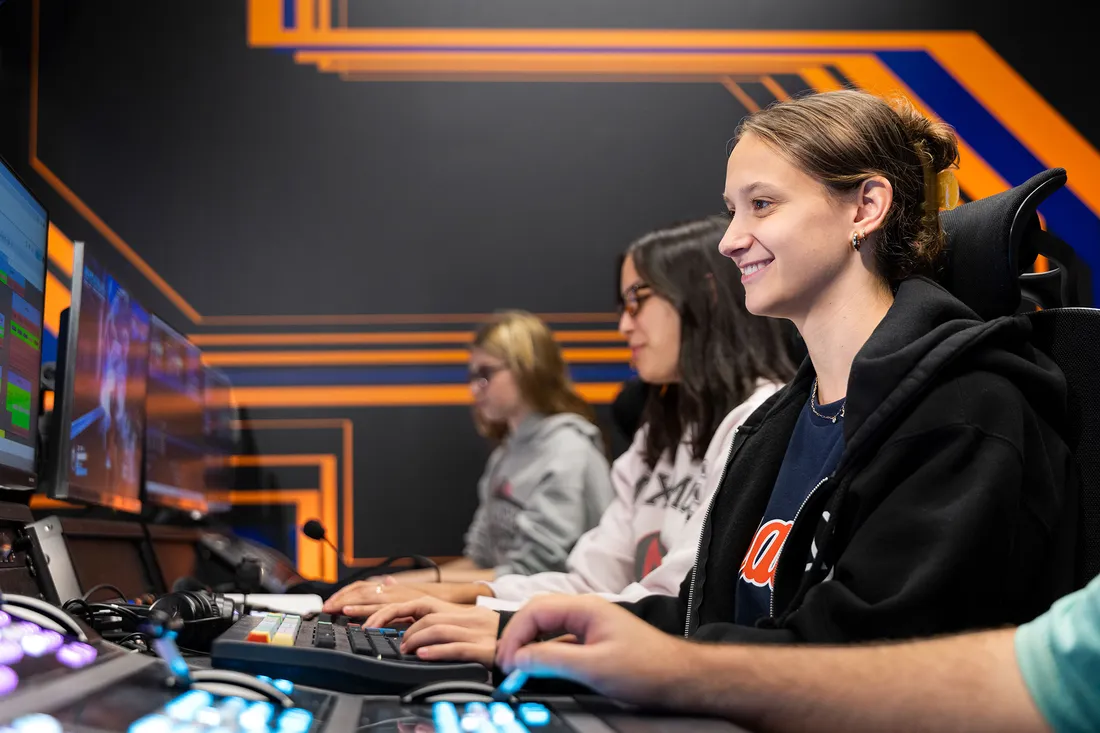
Sophomore Izzy Kaplan works in a production booth, learning behind-the-scenes skills that translate across the entertainment industry—from esports tournaments to broader media productions.
By 2025, the global esports market is expected to generate over $4.8 billion in revenue, with nearly 900 million participants. And like traditional sports, the industry extends far beyond the players.
Behind every tournament are shoutcasters, marketers, designers, team managers and event producers. Syracuse’s program reflects that range—preparing students for real-world careers across business, media and game development.
Kaplan has helped run social media for high-profile events, including the Boost on the Beach Invitational in Myrtle Beach and the Power Esports Conference Championship in Las Vegas. “For both events I was head of socials and gained skills in production, content creation, hands-on networking—and experienced so much personal growth,” she says.
Global Opportunities
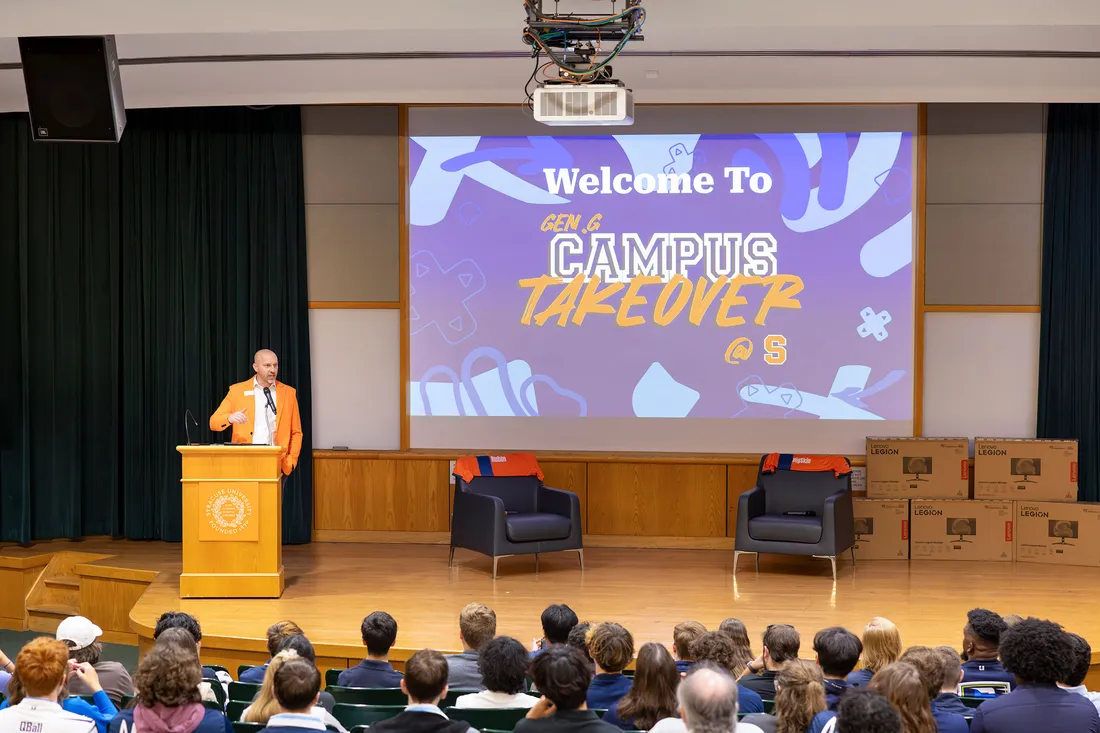
Executive Director of Esports Joey Gawrysiak speaks at the Gen.G Campus Takeover, a two-day conference highlighting career opportunities in the esports industry.
Syracuse’s emphasis on experiential learning is a key component of the program. Through a partnership with global esports giant Gen.G, students can take part in a three-week practicum in South Korea, one of the world’s esports capitals. They receive hands-on industry training, mentorship and international exposure.
“The Gen.G immersion trip reshaped how I saw esports as a global career field,” says Dan Liscum G’25, who earned a master’s degree in television, radio and film. “The projects and skills I gained in Seoul led directly to a new opportunity with Gen.G and proved that esports goes far beyond the U.S.—and that I have a place in it.” Liscum continued work with Gen.G following the practicum as a videographer/editor and has worked events like the Esports World Cup and RoboGames Academy activation in Riyadh, Saudi Arabia.
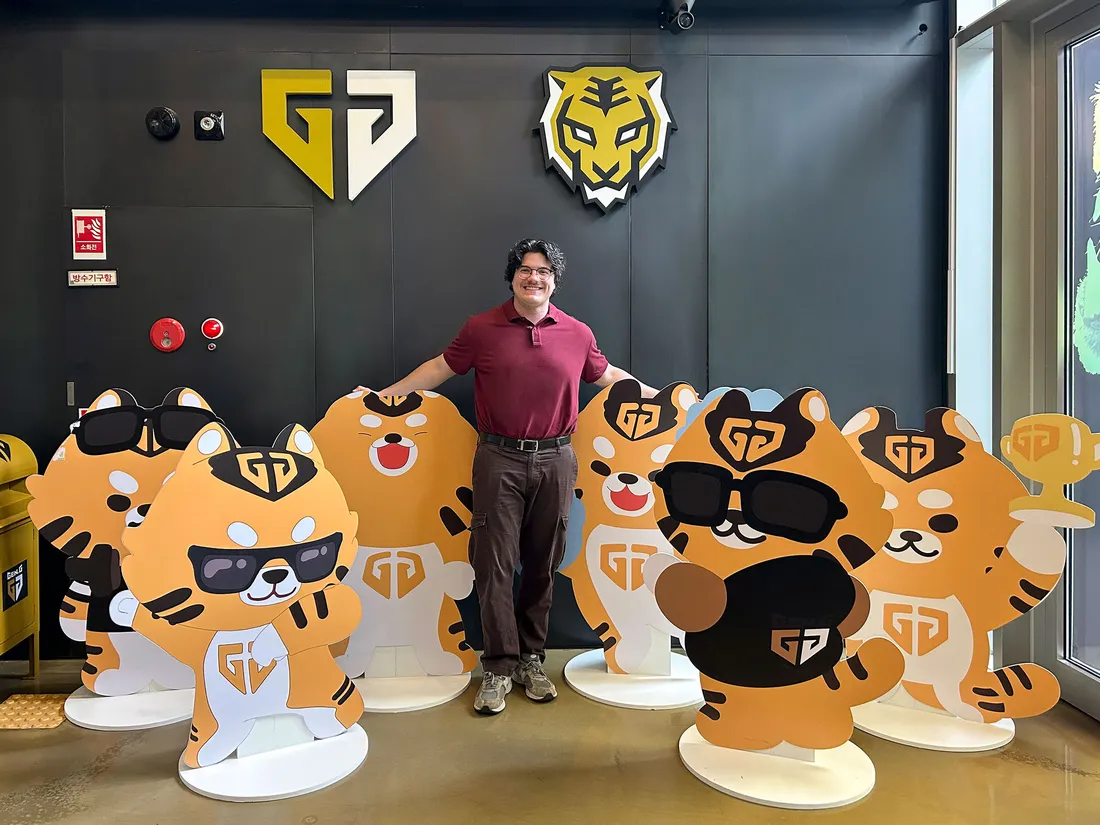
Dan Liscum G'25 completed a practicum in Seoul with Gen.G, leading to work as a videographer at international events, including the Esports World Cup in Saudi Arabia.
Last year, students also traveled to Berlin, Germany, for a weeklong immersion trip to attend Riot Games’ League of Legends World Championship.
“I got to meet and speak with all sorts of industry experts, as well as gain insight into both production and event management while there,” says Kaplan.
Junior Jack McAllister, an esports student on the business and management track, also gained valuable experience from the trip to Germany. “In Berlin, I had the incredible opportunity to network and connect with Riot Games employees, tour their headquarters and see everything that goes on behind the scenes to make the show come to life,” he says.
High-Tech Facilities, Real-World Practice
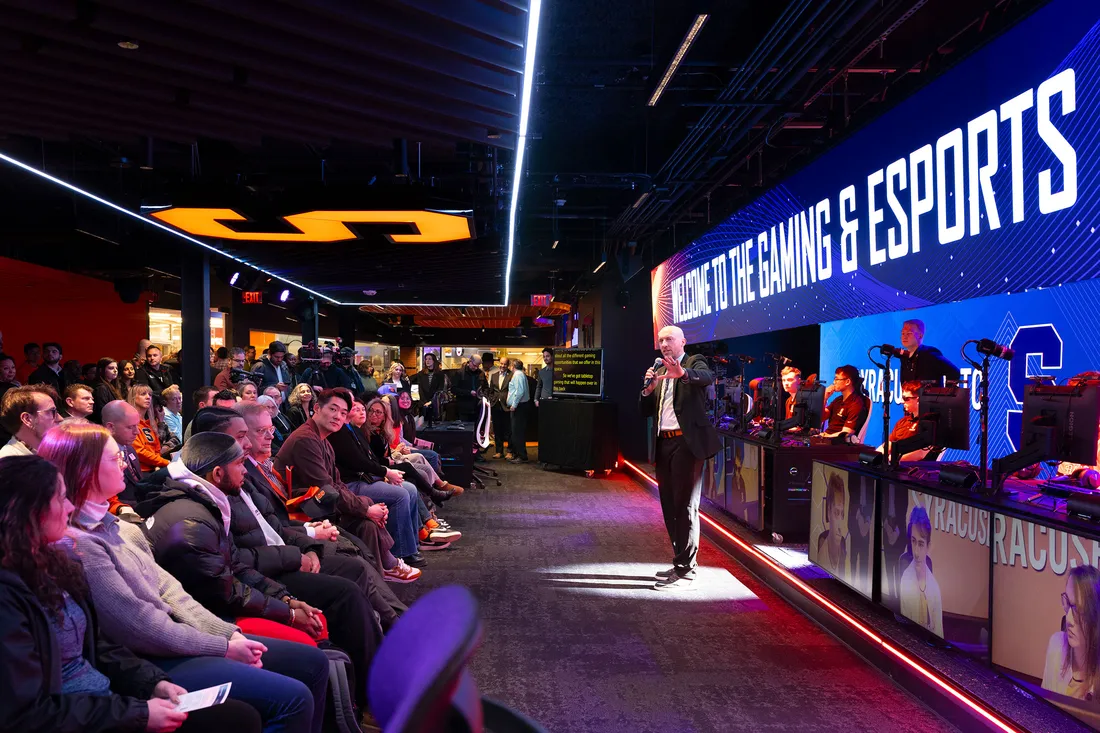
The new Gaming and Esports Center features professional-grade equipment and serves as a learning lab for students.
Syracuse’s new Gaming and Esports Center is a game changer in itself. The 5,800-square-foot facility in the Schine Student Center includes high-performance gaming PCs, console setups, virtual and augmented reality capabilities, racing simulators and professional-grade broadcasting and live-streaming equipment.
“This space shows that we have an eye on the future of gaming and esports,” says Joey Gawrysiak, executive director of esports. “We’re using esports and gaming as an educational opportunity, and this facility is a showcase of all things gaming for all members of our campus community.”
I plan to work in the entertainment industry, and I feel a lot can be done with this degree—I’m not limited to just working within the esports or gaming industry.
Izzy Kaplan
The Barnes Center at The Arch—the original esports hub on campus—still attracts thousands of students. Meanwhile, the renovated Marley Building will serve as a new academic and competitive headquarters for esports. The 20,000-square-foot space will include an esports stage, broadcast studios, team rooms, classrooms and viewing areas for up to 250 spectators.
More than just a gamer’s paradise, these facilities function as immersive learning labs where students gain hands-on experience in everything from tournament logistics to digital storytelling.
A Track Record of Success
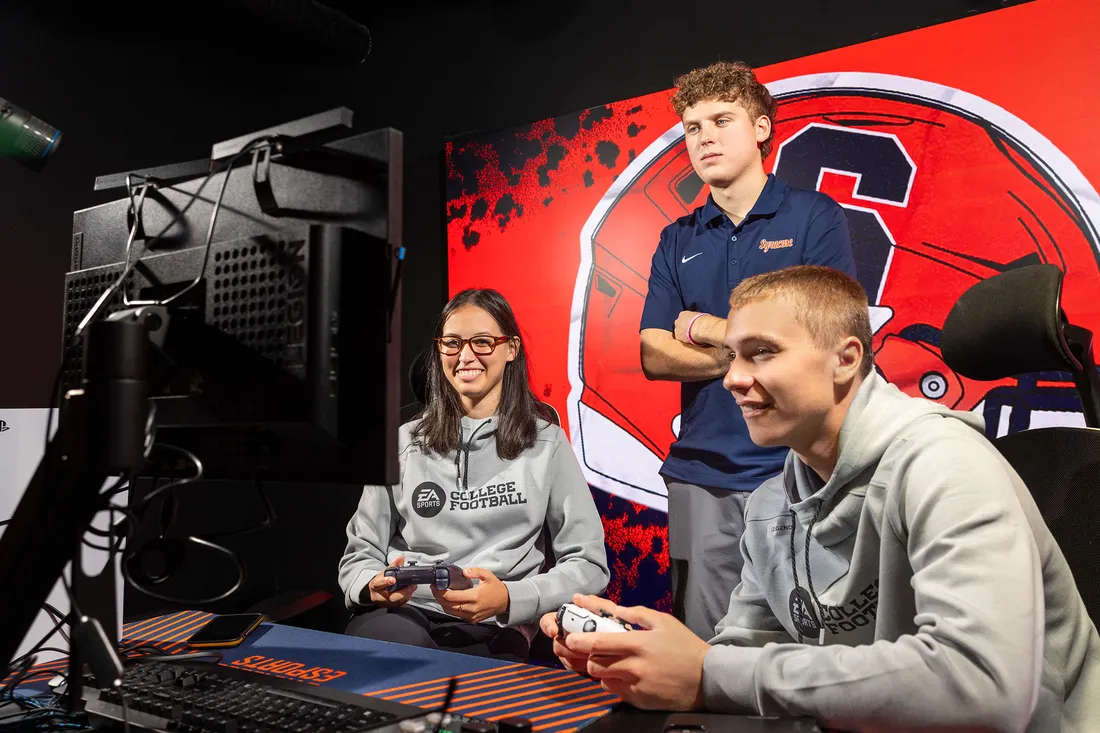
Junior Jack McAllister (standing) and classmates can engage with esports at every level—competing on teams, studying the industry in the classroom and gaining practical experience working events.
Syracuse is quickly emerging as a powerhouse in collegiate esports. It was named the Emerging Program of the Year by the National Association of Collegiate Esports and EsportsU Program of the Year by the Collegiate Sports Management Group. As a first-year varsity team, its Counter-Strike 2 squad captured a national championship. Currently fielding six varsity teams, Syracuse is one of eight Division I schools competing in the Power Esports Conference with universities across the country.
Beyond varsity competition, the Esports Club organizes community events, local tournaments and professional development initiatives—giving students real-time experience in live production, social media and player relations.
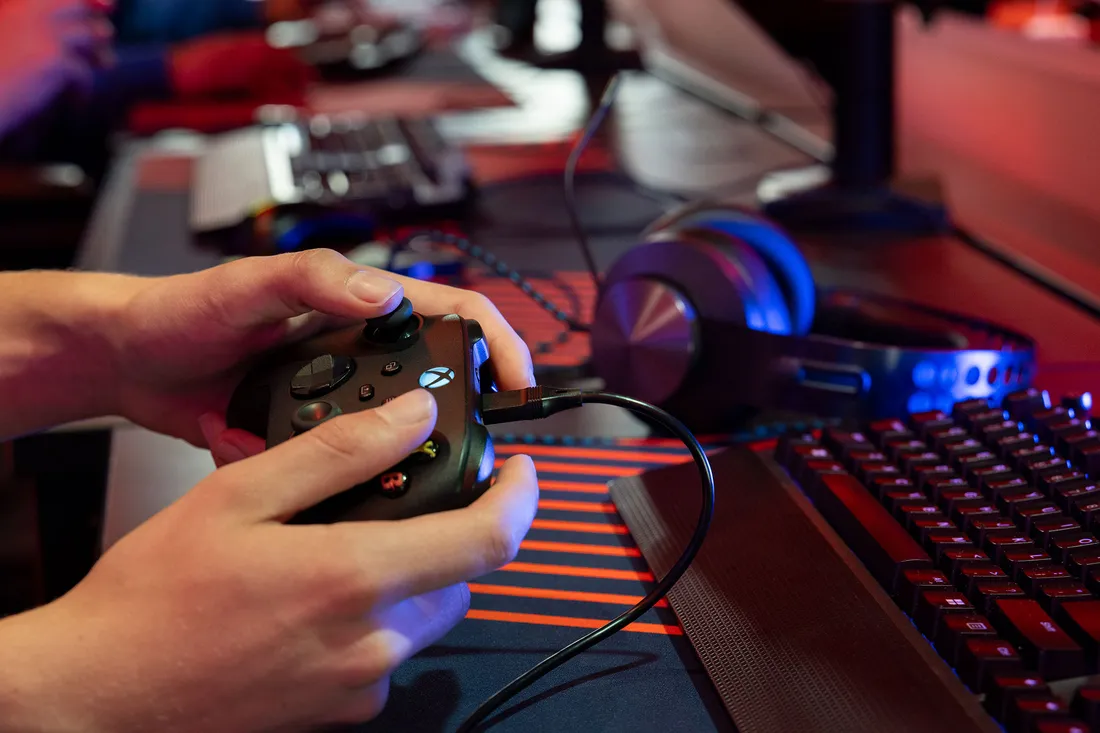
What begins as a passion for gaming transforms into professional preparation, as students build careers in one of the world’s fastest-growing industries
“I worked as a referee for Orange Jam,” says McAllister. “It was a great tournament where eight schools from the Northeast came together for a Counter-Strike tournament in the Gaming and Esports Center in Schine. This immersed me into the esports event world, and I was able to get hands-on event experience.”
Last summer, Syracuse Esports hosted two weeklong camps for middle and high school students, teaching lessons in digital citizenship, communication and the growing world of gaming and esports. McAllister served as a camp counselor and is now volunteering with his local high school’s esports team to help shape the next generation of gamers.
For students at Syracuse, esports isn’t just a game—it’s a launchpad. With the right mix of passion, purpose and preparation, they’re building careers, shaping culture and leveling up an industry that’s only just getting started.

